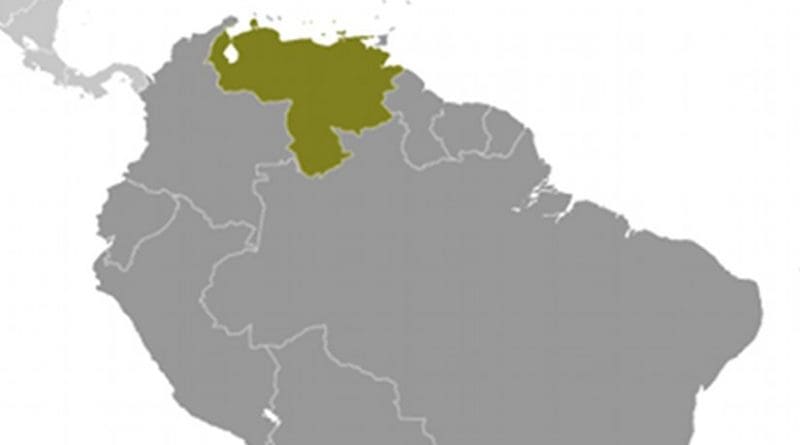Venezuela: Police Raids Hit Poor Areas, Says HRW
Police and military raids in low-income and immigrant communities in Venezuela have led to widespread allegations of abuse, the Venezuelan Human Rights Education-Action Program (PROVEA) and Human Rights Watch said in a joint report released today. The allegations included extrajudicial killings, mass arbitrary detentions, maltreatment of detainees, forced evictions, the destruction of homes, and the arbitrary deportation of Colombian nationals.
The 39-page report, “Unchecked Power: Police and Military Raids in Low-Income and Immigrant Communities in Venezuela,” covers allegations of abuses during public security operations carried out nationwide, beginning in July 2015, as part of the “Operation to Liberate and Protect the People” (OLP), which was billed as an operation to combat criminal gangs. A common denominator in all the cases, and in other cases of government abuses PROVEA and Human Rights Watch have documented over past decade, is the extent to which the victims – or their families – have felt they have nowhere to turn for redress or for protection of their fundamental rights.
“Venezuelans are facing one of the highest murder rates in the hemisphere and urgently need effective protection from violent crime,” said José Miguel Vivanco, Americas director at Human Rights Watch. “But in multiple raids throughout the country, the security forces themselves have allegedly committed serious abuses – including unlawful killings – in the very communities that need their protection.”
The groups will present their findings to the Inter-American Commission on Human Rights at a public hearing on April 4, 2016, in which Venezuelan government representatives have been invited to participate.
PROVEA and Human Rights Watch interviewed – or reviewed written testimony of – dozens of residents in Caracas and five states (Carabobo, Miranda, Nueva Esparta, Vargas, and Zulia) who said they were victims of abuse during OLP raids or had witnessed abuses suffered by others. In two other states, Mérida and Táchira, we interviewed human rights defenders who had documented allegations of abuse and we reviewed information published by international organizations who had conducted research on the Colombian border. We also reviewed official sources, including judicial documents and statements by authorities, as well as photographs and videos.
In February 2016, Attorney General Luisa Ortega Díaz said that 245 people were killed during OLP raids in 2015, in incidents in which “members of different security forces participated.” Dozens more have been killed since the beginning of 2016, according to media accounts. Government officials have routinely said that those killed during the raids died during “confrontations” with armed criminals. Yet the report includes 20 cases in which families of victims or witnesses to killings said that there was no confrontation, including several cases in which the victims were last seen alive in police custody.
In one case, on August 17, 2015, agents from the investigative police force killed 16-year-old Ángel Joel Torrealba in his bed, said his mother, who witnessed the killing. The agents then allegedly beat his parents and sister, and forced the entire family out of the house. The mother said agents then fired some additional shots inside the house, and claimed the boy had been killed in a shootout. Official sources acknowledged that one person had died during a raid that day in Margarita, where the family lives, but said the victim had “confronted” security forces.
The government has not reported total figures on security personnel killed or injured during raids, but PROVEA and Human Rights Watch, in reviewing official documents and media sources on the operations, found three reports of killings and 14 in which security agents were said to have been wounded. The enormous disparity in the numbers of casualties undercuts the government’s claim that killings took place when criminals violently confronted the police, the groups said.
Security agents also have carried out mass detentions indiscriminately, residents told PROVEA and Human Rights Watch. According to official sources, security forces detained more than 14,000 people temporarily between July 2015 and January 2016, during the operations, to “verify” whether they were wanted for crimes, but fewer than 100 were ultimately charged with any offense. More than 1,700 Colombians were deported, the United Nations Office for the Coordination of Humanitarian Affairs reported. Hundreds of deported Colombians had either requested asylum or been granted refugee status by Venezuela, and at least 22,000 more are said to have left the country fearing abuses or deportation.
Witnesses said that in some cases during the raids, security agents beat or otherwise abused detainees. Witnesses also said that some agents stole money, laptop computers, cell phones, and basic goods such as food and diapers while searching homes or detaining their residents.
In other raids, residents said, government agents arbitrarily evicted thousands of people, either from government housing projects or private homes, and bulldozed hundreds of houses. Satellite images obtained by Human Rights Watch confirm that hundreds of homes were destroyed in communities in two states where security agents allegedly carried out mass evictions. Residents said they had neither prior notice nor any opportunity to contest the government’s decision to evict them.

